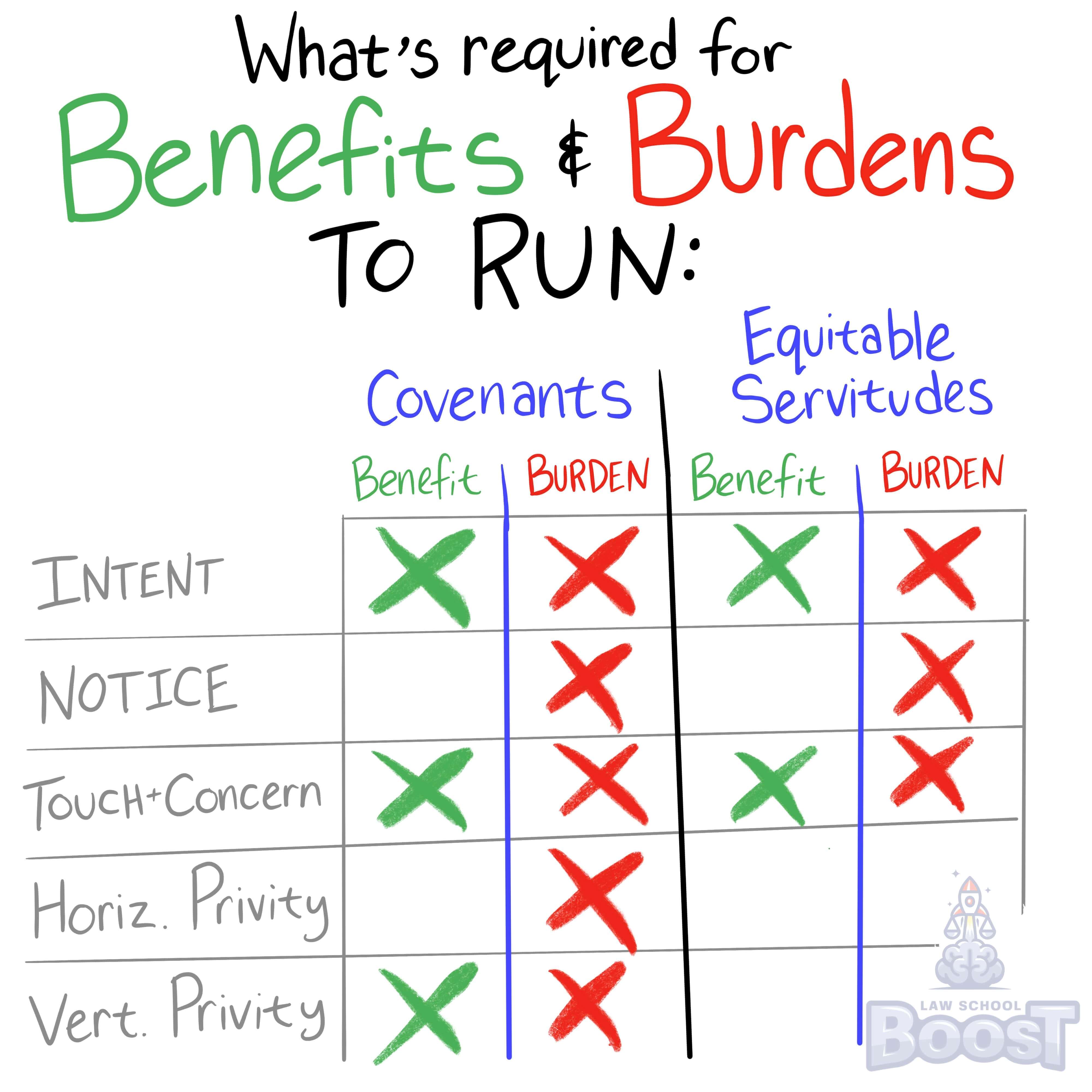😀
Real Property • Real Covenants
PROP#141
Legal Definition
They may be implied from a common scheme for development of a residential subdivision if the developer intends all parcels to be subject. To be bound by a covenant not in the deed, a grantee must have had notice of the covenants in the deeds of the others in the subdivision, which may be actual, inquiry, or record notice.
Plain English Explanation
Imagine if a developer took a large parcel of land and divided it up into 20 individual lots. The developer sells 19 of the lots and includes in each of them an express covenant that the buyers will only use their lots for residential purposes. Each buyer asks the developer, "Are you making everyone promise this?" The developer says, "Yup. All 20 lots will be under the same rules. Residential only!" Later, the developer sells the last lot to a McDonald's franchisee.
Under these circumstances, it is clear that there is a common scheme at play. In addition, the McDonald's franchisee is considered to be on notice of the common scheme because if they had bothered to drive to the area, they would see that all the other 19 plots are residential homes, which makes it a bit weird to build a McDonald's inside of a neighborhood.
In other words, a court will imply the existence of a negative covenant that prohibits non-residential uses on lot 20 because the requirements of an implied reciprocal negative servitude has been met.
Under these circumstances, it is clear that there is a common scheme at play. In addition, the McDonald's franchisee is considered to be on notice of the common scheme because if they had bothered to drive to the area, they would see that all the other 19 plots are residential homes, which makes it a bit weird to build a McDonald's inside of a neighborhood.
In other words, a court will imply the existence of a negative covenant that prohibits non-residential uses on lot 20 because the requirements of an implied reciprocal negative servitude has been met.
Visual Aids

Related Concepts
How is an equitable servitude created?
How is an equitable servitude terminated?
How may a covenant be terminated?
In assessing an equitable servitude, when will a benefit run with the land?
In assessing an equitable servitude, when will a burden run with the land?
In assessing real covenants, how will courts treat racially restrictive covenants?
In assessing whether a real covenant will run with the land, what constitutes intent?
In assessing whether a real covenant will run with the land, what constitutes notice?
In assessing whether a real covenant will run with the land, what is horizontal privity?
In assessing whether a real covenant will run with the land, what is touch and concern?
In assessing whether a real covenant will run with the land, what is vertical privity?
What are the 5 equitable defenses against enforcement of an equitable servitude?
What is an equitable servitude?
What is a real covenant?
What is required for a benefit to run with the land?
What is required for a burden to run with the land?
What is the remedy for breach of an equitable servitude?
Which covenants always run with the land?


